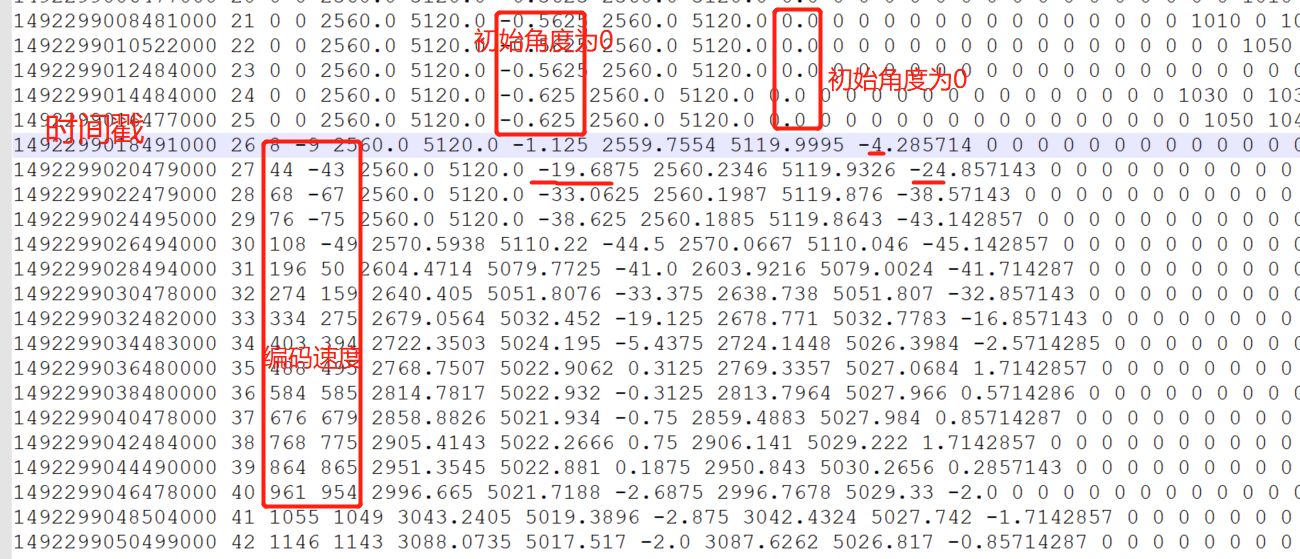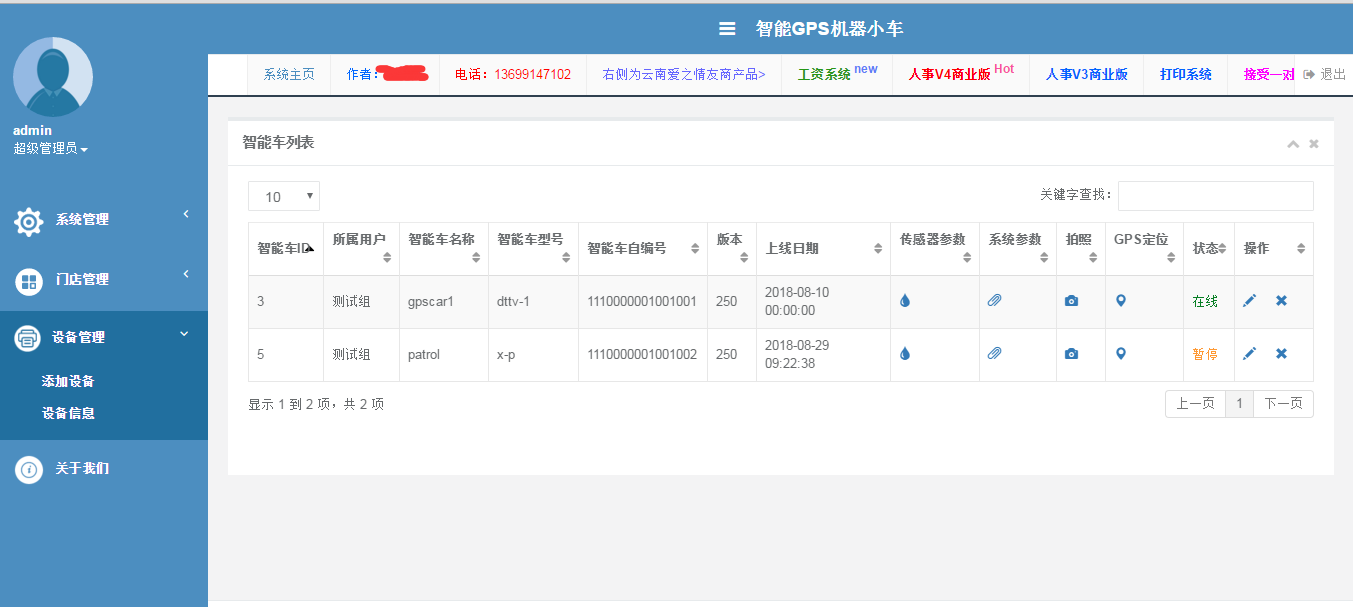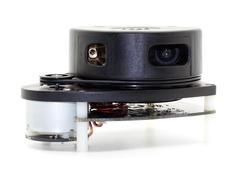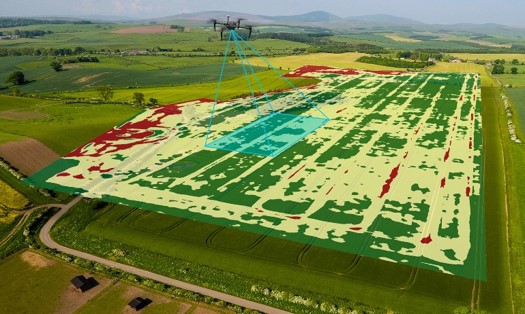surveyor slam建图中需要的信息参数-breezyslam的应用
在github中找到一个关于slam入门级别建图的学习,这里简单的梳理一下。
chasis 底盘中可以采集传感器的信息,包括BNO055 的imu信息,还有左右两轮子的转速信息。由于DIY这个slam建图的工程师是在乐高EV3上实现的
并且使用java 开发的,本人java水平有限,而且对乐高接口不熟悉,连猜带蒙写一些理解。
有两个比较重要的类,一个是 MapTracker ,提供 位姿信息,位姿包括当前位姿,目标位姿,位姿差,航向角,目标航向。
public static enum PlanState{NONE, DIRECT, PLAN};
final static float[] speedMult = {1.0f, 0.75f, 0.5f, 0.0f, 0.0f, 0.0f, 0.0f, 0.0f};
PoseProvider imuPose;
Pose deltaPose = new Pose();
public Pose targetPose = new Pose();
float heading = 0.0f;
public float targetSpeed = 0.0f;
public PlanState planState;
另一个类是 LineFollower 提供 底盘的当前速度,目标速度,加速度值
protected Chassis chassis;
protected MapTracker tracker;
protected float P, I, D;
protected FollowState state = FollowState.STOPPED;
protected Thread thread;
//protected static final float MAX_STEER = 125.0f;
protected static final float MAX_STEER = 10.0f;
protected static final long LOOP_TIME = 100;
protected float curSpeed = 0.0f;
protected float targetSpeed = curSpeed;
protected float acceleration = 50.0f;
protected float outputVal;
有以上两个类生成 StatusTracker,
public StatusTracker(LineFollowerChassis chassis, LineFollower follower, Pose p, String name, String host, Power batt, SampleProvider ir, MapTracker tracker) throws UnknownHostException, IOException
{
this.chassis = chassis;
this.name = name;
odom = chassis.getPoseProvider();
imu = chassis.getIMUPoseProvider();
battery = batt;
infraRed = ir;
this.follower = follower;
this.tracker = tracker;
setPose(p);
sock = new Socket(host, 2446);
dos = new DataOutputStream(sock.getOutputStream());
dis = new DataInputStream(sock.getInputStream());
dos.writeUTF(name);
Thread thread = new Thread(this);
thread.setDaemon(true);
thread.start();
}
最终通过lidar 捕获一帧一帧的数据 写入log
public Lidar(Port motorPort, Port sensorPort, RegulatedMotor left, RegulatedMotor right, PoseProvider robotPose, PoseProvider pose2, String logName, StatusTracker status) throws IOException
{
System.out.println("Starting Lidar");
log = new PrintWriter(new FileWriter(logName));
motor = new EV3LargeRegulatedMotor(motorPort);
laser = new I2CSensor(sensorPort, ADDRESS, I2CPort.TYPE_HIGHSPEED);
this.left = left;
this.right = right;
this.robotPose = robotPose;//对应的pose,有bno055提供的
this.robotPose2 = pose2;//对应的pose2
this.status = status;
running = true;
Thread scanThread = new Thread(
new Runnable() {
public void run() {
runCaptureScans();
}
}
);
Thread processThread = new Thread(
new Runnable() {
public void run() {
runProcessScans();
}
}
);
scanThread.setDaemon(true);
scanThread.setPriority(Thread.MAX_PRIORITY);
processThread.setDaemon(true);
processThread.start();
scanThread.start();
}
最终处理一帧汇总后,
protected void runProcessScans()
{
System.out.println("Lidar process thread running");
while (running)
{
LidarScan scan = waitForScan();
if (scan == null)
{
System.err.println("Missing lidar scan");
break;
}
log.print(scan.timestamp*1000 + " " + scanCnt++ + " " + scan.leftTacho + " " + scan.rightTacho + " " +
scan.pose.getX() + " " + scan.pose.getY() + " " + scan.pose.getHeading() + " " +
scan.pose2.getX() + " " + scan.pose2.getY() + " " + scan.pose2.getHeading() +
" 0 0 0 0 0 0 0 0 0 0 0 0 0 0");
int zero = 0;
for(int i = 0; i < scan.ranges.length; i++)
{
log.print(" " + scan.ranges[i]*10);
if (scan.ranges[i] == 0) zero++;
}
/*
for(int i = 0; i < scan.ranges.length; i++)
{
if (scan.poses[i] != null)
log.print(" " + scan.poses[i].getX() + " " + scan.poses[i].getY() + " " + scan.poses[i].getHeading());
else
log.print(" 0.0 0.0 0.0");
}
*/
log.println();
//System.out.println("scan " + scanCnt + " missed " + missed + " retry " + retry + " error " + error + " zero " + zero);
status.setScan(scan);
}
}
log.dat 如下
heading 经过了归一化处理。范围在-180 -180
while (newPose < -180)
newPose += 360;
while (newPose > 180)
newPose -= 360;
先不用考虑乐高的底层是怎么计算出来的,只要在我们的底盘中能够获取正确的传感器信息,并把这些数据 按照图中的格式写入log中,下一步就可以slam建图了。







